Feature
Alex Jacques: The voice behind Formula 2
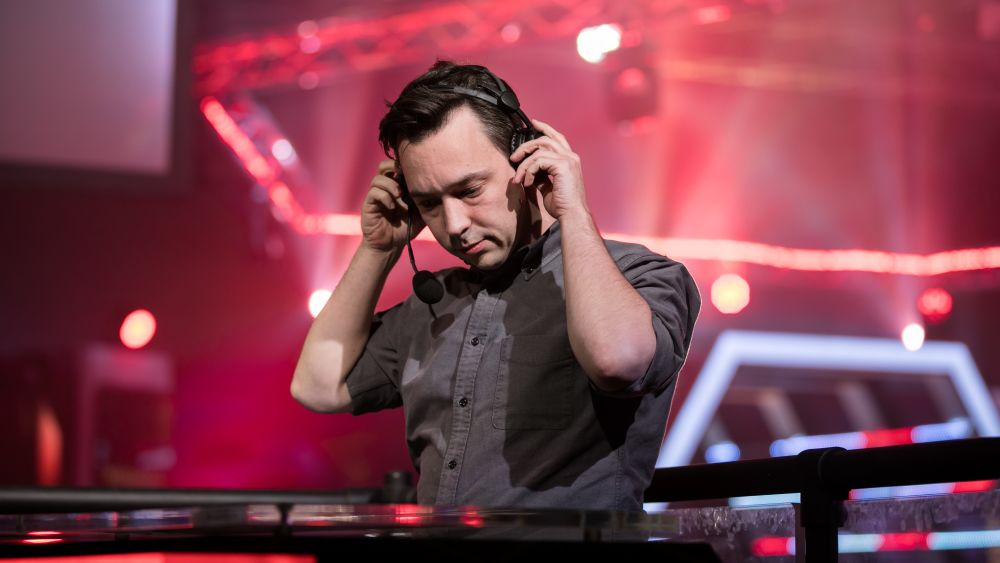
Nose pressed against the screen, mouth on the microphone, Alex Jacques was in the zone, attempting to depict an epic battle for the lead in the Formula 2 commentary box.
When the long-awaited move finally came off, he turned to his co-commentator, Davide Valsecchi, for some opinion on the race-defining manoeuvre. Mid-wardrobe change, Valsecchi leapt to Jacques’ aid in only his underwear and attempted to make sense of the overtake. The sound man who chose that exact moment to walk into the room could do nothing but stare in bemusement at the scene that greeted him.
“He must have been thinking ‘what is this F2 commentary nonsense?” laughs Jacques.
“Davide used to arrive from his job with Sky Italy just in time to cover the race, but would have to change out of his Sky uniform. There was one occasion where he was halfway through and I needed to bring him in, so the sound guy walks in to Davide commentating in his pants and is just speechless. It was amazing.”
Jacques has been the unmistakable voice of the Road to F1 for going on six years now and even in that relatively short span of time he’s seen it all – and not just Valsecchi in his briefs. Although, many of his stories do involve the larger than life Italian.
“Italy 2017,” grins Jacques. “It was one of the hardest races I’ve ever had to call because you had so much talent in the field, plus it was dark, it was wet, and there was an overtake every 30 seconds. I am going at 1,000 miles an hour and ask him ‘Davide, what did you think of that?’ and he is stood up taking a selfie with me… It was like 15 seconds of dead air and I’m just thinking ‘what are we doing?”
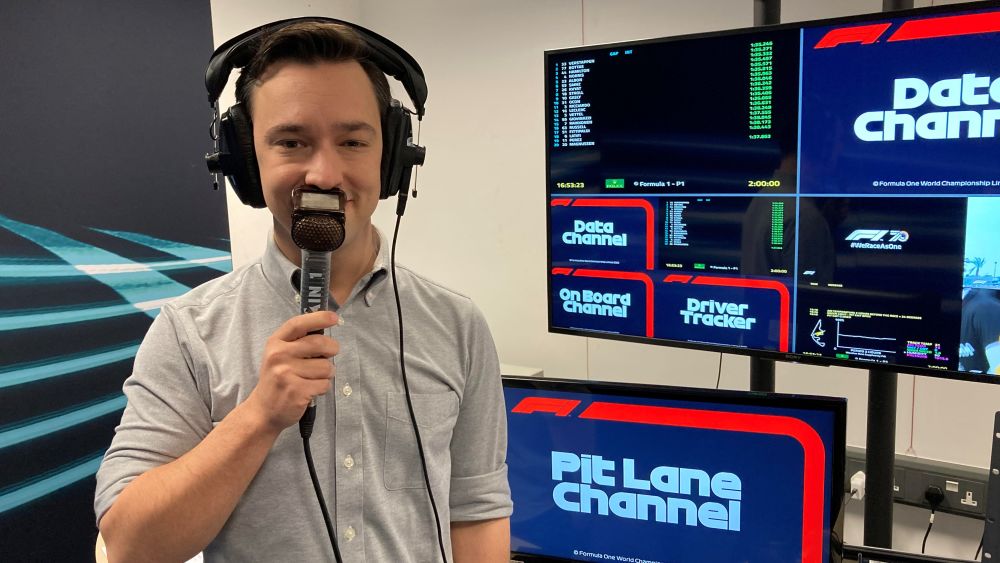
Since taking up the position in 2015, Jacques has eloquently told the stories of a wide spectrum of junior talent as they attempt to make their way into Formula 1. The likes of Pierre Gasly, Antonio Giovinazzi, Stoffel Vandoorne, Charles Leclerc, George Russell, Lando Norris, and more recently, Mick Schumacher and Yuki Tsunoda, have all passed through GP2 and F2 and into the pinnacle of motorsport during his time in the commentary box.
It’s the part of the job Jacques finds most satisfying: witnessing their journey towards stardom, a fact that won’t surprise those who knows him. Jacques – who until recently, shied away from social media - is totally selfless. It’s never been about him, it’s always about those on track.
“I love that you are seeing these drivers in this nearly complete state,” he explains. “They have nearly gotten to the point where they are ready for Formula 1, but not quite. It’s just like seeing a band before they get big, and I have always loved that. You get to see the improvements made, the weaknesses corrected - you get to see the breakthrough.
“The Charles Leclerc year, that was phenomenal. This belief building and building and building. Someone so young, capable of so much. I love seeing the journey.”
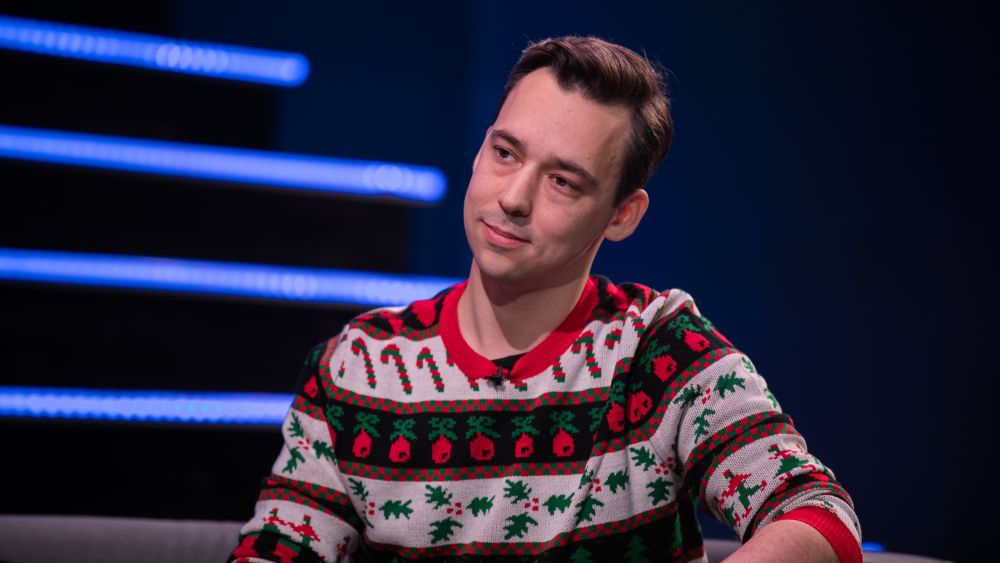
Jacques has been through a similar journey himself over the past five years. Born in Suffolk, he studied Politics at University, working on the University’s newspaper and radio station, as well as in hospital radio, before getting his break with BBC local radio covering football.
Effectively a first reserve whenever somebody couldn’t – or didn’t want to – make a game, Jacques gradually took on more responsibility, covering the likes of Manchester United and Liverpool in the Premier League at Norwich City, as well as a variety of other sports, including Cricket and even some GP3, thanks to a Suffolk based driver named Josh Webster.
It’s just like seeing a band before they get big, and I have always loved that
It was a role that he dovetailed with his day job as a reporter at the prestigious Times Newspaper. Will Buxton – who has gone on to lead F1TV’s race weekend coverage - was the GP2 commentator at the time, but he stepped down and left a void that needed filling.
Jacques wanted to be the one to fill it.
“I had moved to the Times Newspaper from the radio station,” he says. “I was doing five days a week there in what was a very intense newsroom environment where it was sink or swim, and then on weekends I would still take my radio equipment around the country and commentate on sport.
“At that point, I expected to stay with the newspaper and build a career there. The stuff that I was doing on the weekend was because I loved commentating on sport, and it made a nice change from the day job. I could go and talk about football, motor racing, cricket or whatever would have me. But in the back of my head, I was building up a showreel in case an opportunity arose.
“Will Buxton had written a blog and said that he was leaving the GP2 commentary role. I didn’t know anyone who worked for Formula One Management, but I found the email address of the executive producer for Formula 1's TV broadcast. I kept emailing and phoning and I was basically this real irritation between November 2014 and January 2015. I managed to get in the room with them and said, 'I think you take GP2 and GP3 really seriously and I would like to take it just as seriously as you do.’”
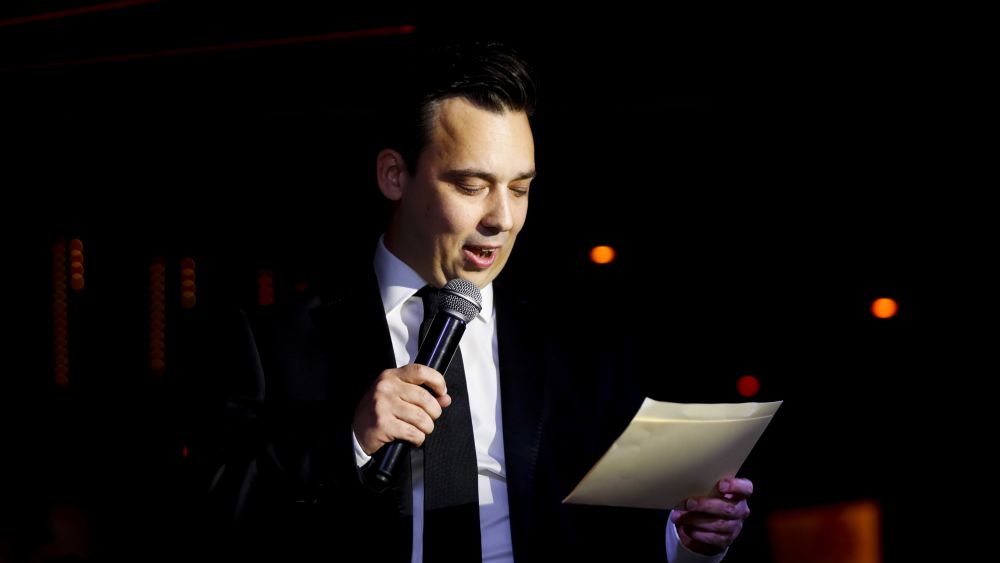
It was a rollercoaster start to the year, but he had to quickly get used to the ride. A Grand Prix weekend debut came less than two months later in Bahrain when Jacques was flown out and thrown in at the deep end as the sole commentator on GP2 Free Practice.
“Nothing is like a Grand Prix weekend: it is on another scale,” he says. “I’d never felt nerves like it, not giving my best mate’s best man speech, not proposing to my girlfriend last year. There is nothing that will ever come close to the nerves of that first race. I was in the back of the TV broadcast centre with hundreds of scenes in front of me, surrounded by all of these people who’d been doing their jobs for years.
“I’d wanted to do this all of my life and I was given the keys to commentate on one of the most exciting championships that there is. It is a really odd experience because you’re looking around and thinking 'are you really going to let me commentate on this?' The last game I had done was Rochdale vs Colchester.
I’d wanted to do this all of my life and I was given the keys to commentate on one of the most exciting championships that there is.
“I had my little notes in front of me and suddenly someone is counting down in my ear - it was intimidating. You’re the front person for all of these people's work, so it was good to start in the back of the gallery because you can see and appreciate what everyone is doing. It felt like 30 seconds when it was done, but on air it felt like four hours. It was this really weird dynamic.
“I had Jolyon Palmer for the rest of the weekend, and man was I lucky to have him as a co-commentator! He is so good at breaking down the information. He was the reigning champion at the time, had a reserve role with an F1 team and just cool as you like, breezed in and was very kind to me on air. I think if he’d wanted to, he could have buried my commentary career in that moment, but thankfully he was great.”
When Jacques says he had his ‘littles notes’ in front of him, he’s massively under-exaggerating. It’s a catalogue of encyclopaedic information and organised chaos that includes his ‘spotters guide’ - two pages of A4 notes on each driver, pre-race quotes, almost unlimited facts and figures, a track map and detailed analysis of each corner, to name just some of it.
Around 90% of that never sees the light of day, but it means he’s never caught short.
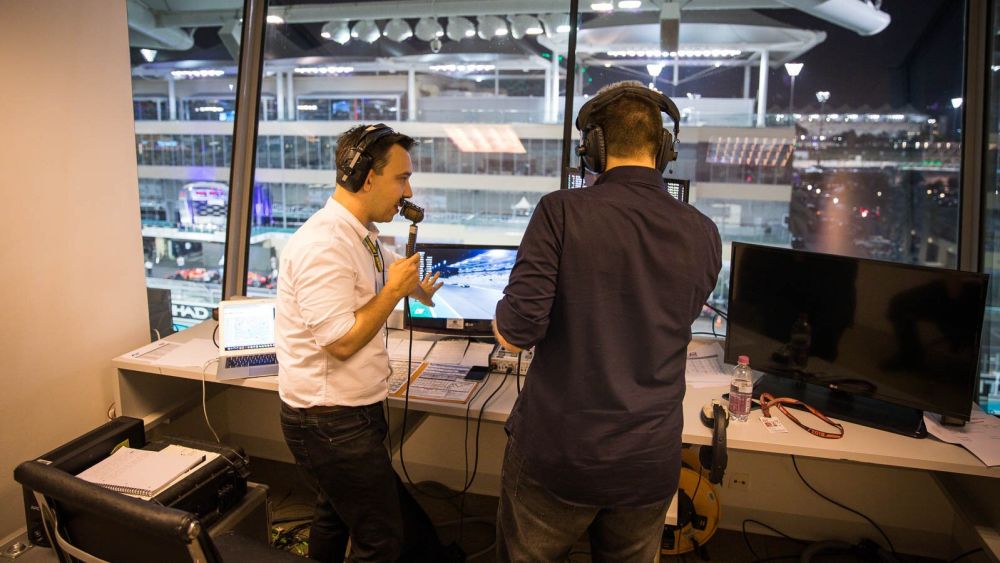
“You can get a red flag and it’s then 40 minutes of nothing,” he explains. “Around three years into the job, you get to a point where you could cover around four hours of that, as long as it’s not a serious crash or anything. We had enormous rain delays in the second round at Styria last season, and I don’t know how many times I need to learn these lessons, but I was thinking, ‘there’s no way that we are going racing.’
“I am not saying my backpack was packed, but it was... And I was thinking about what I was going to have for tea. I looked at the race control screen in front of me, and sometimes, you just read a message out loud before saying it in your head. Fully expecting this message to say: ‘we’ll see you tomorrow morning’, I start reading ‘message from race control: we will start in 10 minutes...’ and I may as well have finished with ‘I’m Ron Burgundy...’ It was complete nonsense because I hadn’t read the whole thing.
“After that, you’ve got to reset and go back to providing the energy and the excitement.”
That’s the beauty of F2 and F3. Anything can happen in any given situation. A race can completely turn on its head in an instant. To the viewer, Jacques makes it all look so effortless, but that’s when his job is at its most challenging.
“We had a couple of races like that in 2020,” he recalled. “Spain last year is a great example. Callum (Ilott) winning the Feature Race is a done deal, he has put everything together and there is no question that anyone can catch him. My brain is starting to ask: ‘do I say that he’s the championship favourite?' and then the Safety Car comes out.
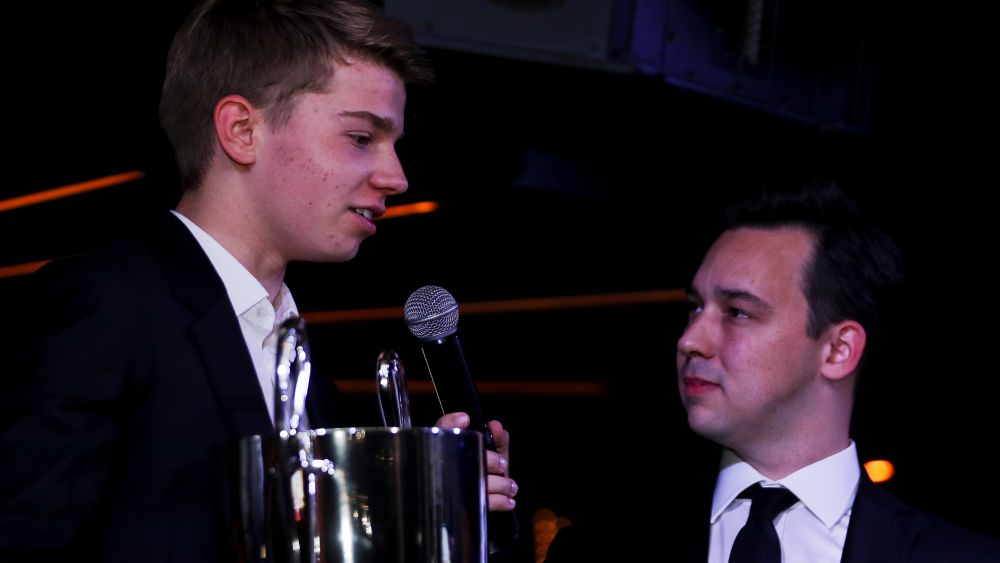
“My brain is scrambled. This never ever happens anywhere else other than in F3 and F2, as far as I’ve seen. (Nobuharu) Matsushita ends up winning despite the fact he’s been nowhere all season. He crosses the line and my head’s telling me that I have to say that ‘Matsushita wins in Spain,’ I have got to say those lines. It’s the rules of commentary, but I am watching and there’s an overtake going on there, and another there, and then one at the final chicane too.
If you get it right, then you’ve done your job really well. If you get it wrong, it turns into word soup.
“Everything you have learned about motor racing down the years and all logic goes out of the window. That is the hardest part, but also the most rewarding part. If you get it right, then you’ve done your job really well. If you get it wrong, it turns into word soup.”
Announced as Channel 4’s new lead F1 commentator last November, Jacques continues to live out his childhood dream, but it left junior formula fans sweating over the future of F2 and F3 commentary.
Thankfully, when they switched on their television sets for Round 1 in Bahrain, Jacques’ distinctive voice was there to welcome everyone.
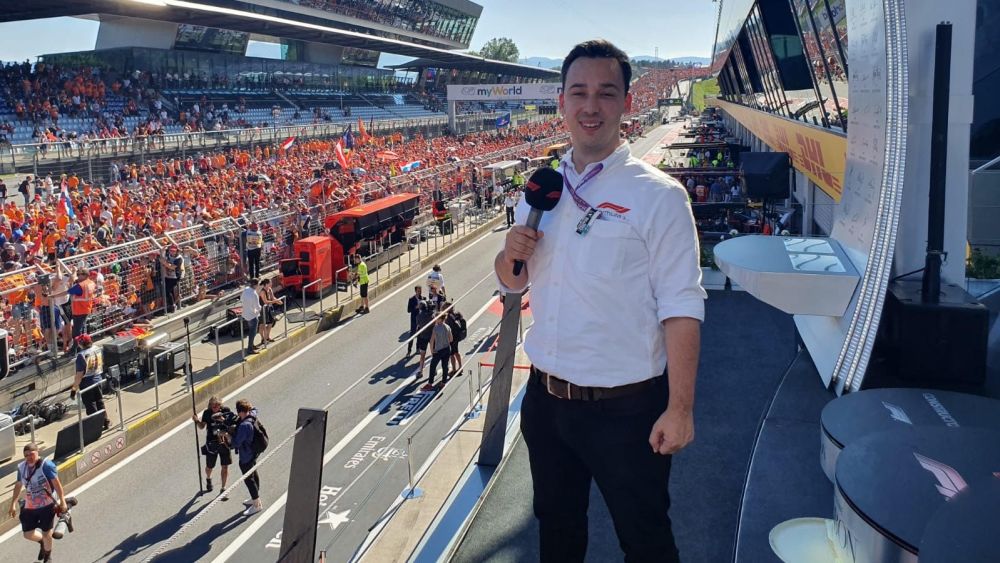
“This is genuinely true, and it’s one of the reasons why I am carrying on,” he says. “I never took the GP2 job with the aim of it leading to Formula 1. It was because this was exciting motor racing, and that’s what I wanted to do.
“I love this job and I think that comes across on air. If you get a key moment right, then you feel like you have added something to the broadcast. That is the joy of commentating. You can never complete commentary and I love the challenge of trying to improve year-on-year. I am very, very lucky to do the job I do.”